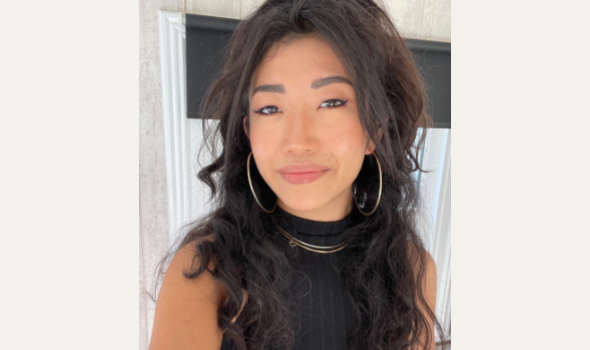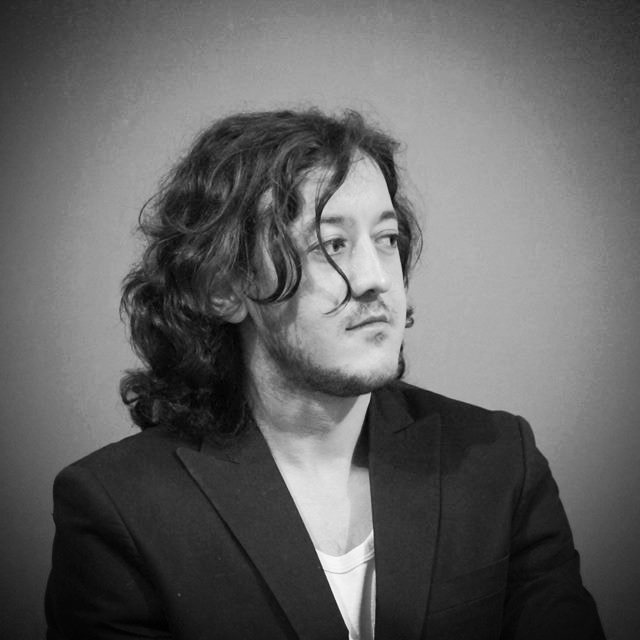Art Represent: Making sense of what brings us together
Art Represent: Making sense of what brings us together

What do we have in common with people, and what sets us apart?
Baiqu Gonkar started asking herself these questions at a young age. Born in Tibet, Baiqu saw the discrimination Tibetans faced from Han Chinese when she was a child. She moved to the UK at 11, and in London, a melting pot of stories, lives and cultures – she faced racism and discrimination once again. “People do not see you as an individual, or recognise your multi-layered identity,” she said once. As a new Londoner, she began to wonder: What does representation mean? Why, in such a diverse city, do people still face discrimination, prejudice and stereotypes?
The ideas stayed with her into adulthood. Today, Baiqu is the founder of Art Represent, a platform that champions artists affected by conflict with the aim of giving them a much-needed infrastructure to showcase their art. With Art Represent, Baiqu seeks to empower artists, creatively and economically, and push for social change through art. Her is a story of representation, identity and humanity, and how they can all connect people.
The platform encapsulates Baiqu’s main areas of interest: to start a conversation about what brings people together. Her background working in museums in China and tech and start-ups in the UK, her degree in politics and international relations and her personal history of migration all helped her create Art Represent in 2015 in a gallery space in Bethnal Green, East London.
“I wanted it to be something that empowered people whose voices are maybe not heard as much,” she tells Migrant Voice today. “I really believe that having a personal connection with someone or with someone's story helps you to break down your notions of what that person's community is about, what that person is about.”
Early on, Baiqu started contacting artists that she found online, and asked them if they wanted to have their art showcased. Many accepted, knowing that this would give them a chance to reach a wider audience.
Some had their first solo UK exhibitions thanks to Art Represent: one of these was Omran Narmo, or Imranovi, as he is also known.

Picture: Omran Narmo
A Syrian who had left his home country to avoid conscription during the war, Omran made art to talk about what was happening back home. He had started when he heard of a massacre that killed dozens of children in the city of Houla, hoping that art would help spread the word about Syria. His exhibition, “Modern Face of Syria”, took place in late 2015 in Art Represent’s gallery. The exhibition was named after one of Omran’s pieces, representing Bashar al-Assad’s silhouette, made of rubble and destroyed buildings. As a result, his work was featured on CNN and on the BBC, putting him in the spotlight for his pictures.
“It was very fun, lots of people came,” Omran says. But he was watching from Dubai: unable to travel to London, Omran followed the exhibition from his phone, with Baiqu sending him photos and videos. “It was the first major achievement of my life,” he says, “and I couldn’t be there physically.”
This happens a lot with exhibitions at Art Represent; Baiqu says that she hasn’t met most of the artists featured face to face.
But what’s unusual elsewhere can be very normal at Art Represent. Baiqu learnt quickly that working with artists who live in conflict areas is not always straightforward, or safe for everyone. “The first exhibition that we launched, we had to get materials from Afghanistan, and the day that our contact was supposed to go to the market to get the material, there was a bombing in the market,” she recalls. “That made everyone sort of hyper vigilant about the safety of who you're in touch with on the ground.”
Baiqu finds it important to leave artists free to choose what type of art they want to showcase on Art Represent. Not all of them want to make art about war, conflict, or occupation, but often, western galleries or art spaces tend to focus on that aspect only. She talks about the fetishization of someone’s history – reducing an identity to their relationship to conflict.
“There is a fine line,” Baiqu explains, “because you want to highlight the existing issues, and you want to highlight the reason why you're focusing on this particular thing… At the same time, you don’t want to say that all artists from conflict areas are the same,” or force diverse artists into the same theme for the sake of an exhibition. Art Represent is, for Baiqu, “a space where the individuals who we’re working with can fully express themselves, and can freely create in the way that they see fit.”
The platform has now mainly moved online, but still runs physical projects. A virtual visitor roaming around the collection will quickly notice its diversity of topics, art techniques, places represented and almost anything else. While war and conflict are a prevalent subject, because of many artists’ experiences, many others explore themes such as identity, humanity, beauty.
Sonam Yeshi, an artist based in Dharamsala, India. Her most recent project, Evolution, is a series of prints depicting women wearing traditional clothes and headgear from different regions of Tibet, coupled with various pairs of modern, fashionable sunglasses, and patterned face masks. “Evolution is about contemporary women who have learned to navigate past and present trends in the many nomadic areas on the Tibetan Plateau,” she told Art Represent.

Picture: Sonam Yeshi
Sonam, who has a background in fashion and design, says that her artwork is not political – in fact, she tends to stay away from politics. “It is more about identity, preservation and awareness,” she adds.
Baiqu, her team and some of the artists, including Omran, have faced online criticism and threats because of some of the exhibitions, much of it from people loyal to regimes or groups the artists criticised. But, although everyone’s safety and security come first, Baiqu says, the hostility motivates her to keep going. It has made her even more determined to showcase the art even when it starts difficult conversations, as this is what Art Represent hopes to do: “every project that we put on, we hope to ask questions that are not being asked in the public forum,” says Baiqu.
Art Represent’s upcoming project, “We Represent Art Toolkits”, aims to provide young people with the tools to use art as a way to build “empathy and civic engagement”. “We wanted to look at how to replicate the impact we were having on audiences who usually come to our exhibitions to a wider audience and for it to be more scalable,” says Baiqu. The project will be run in Tower Hamlets with the collaboration of the council, and in the City of London.
Baiqu is proud of her work and what she has built. She hopes that Art Represent will bring some degree of positive change to the lives the project has touched, and it seems like she has managed to do so.
“Because of my personal background, this project is more than just, well, a project for me. This is a personal thing. I want it to always exist, even beyond me. I hope that other people can take it forward, and create something out of it.”
All photos provided by Baiqu Gonkar.


